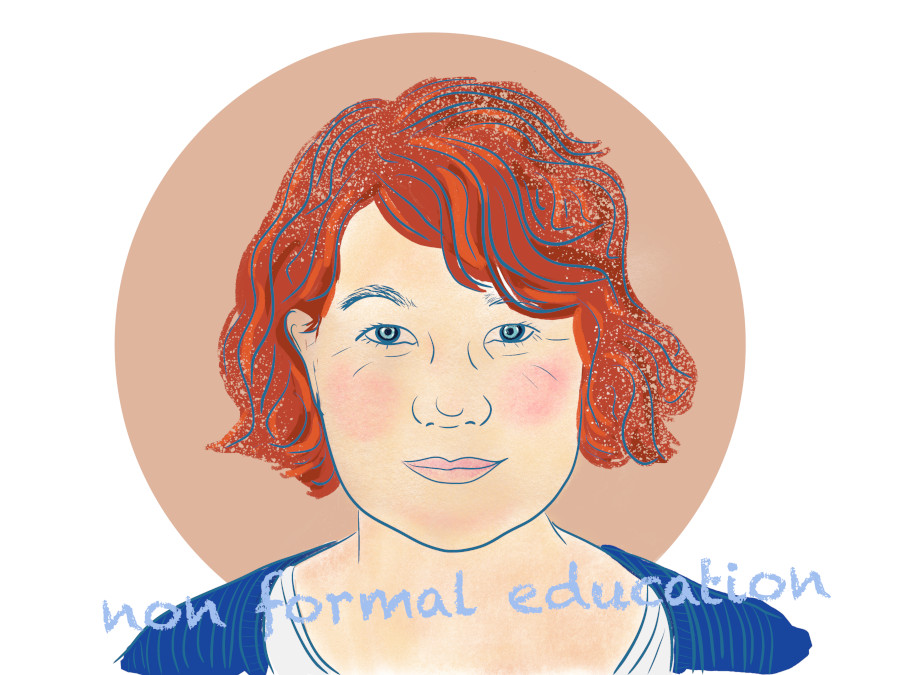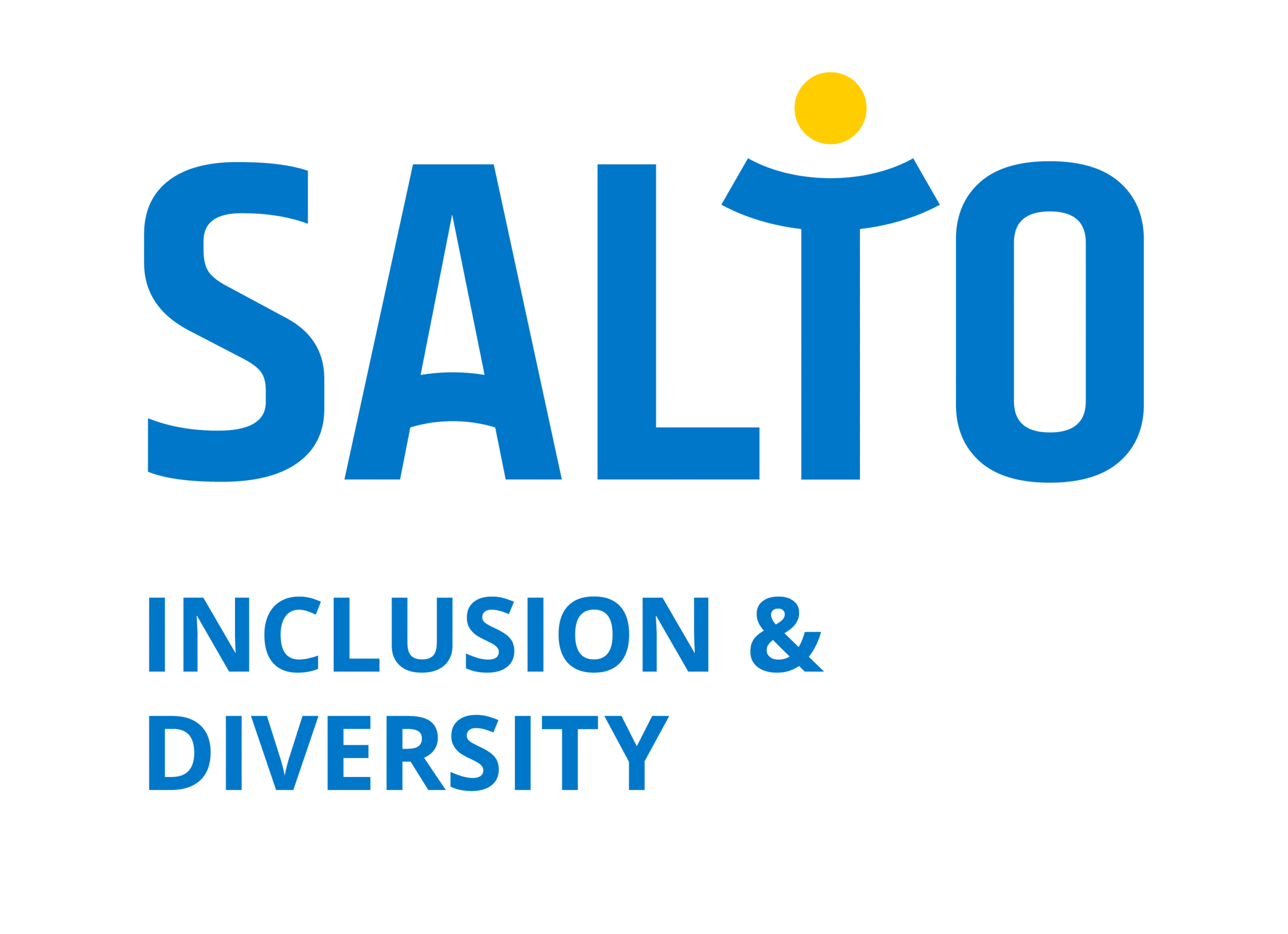Being a part of a living example of European cooperation
Susie Nicodemi
Cultural Diversity (London)

The mood in youth work was hopeful and pioneering.
When SALTO started, for me the international youth work felt new and exciting and many people shared this emotion. Actually, back then cheap flights were rare, many young people didn’t even have passports, and a funded youth exchange was a big, unusual opportunity.
Key challenges I can recall were the recognition of youth work as well as different political and social tensions. 25 years ago youth work was often seen as a hobby rather than a profession, so convincing others of its value was a hurdle. It was also a time when the Good Friday Agreement had just been signed in Northern Ireland, the Balkan wars were fresh, and issues of identity, racism, and segregation were prominent. Soon after came the 9/11 attacks. In the United Kingdom, and generally in western Europe, we also experienced a lot of racial unrest and riots that underlined the need for dialogue and inclusion. The European Commission wanted to strengthen human-rights education and anti-racism work inside the new Youth Programme starting from the year 2000, and the British Council already had long experience in multicultural dialogue and international relations.
Back then, the mood in youth work was hopeful and pioneering. There was excitement about cross-border cooperation, new EU youth funding, and the chance to promote human rights, anti-racism, and multicultural understanding through youth work.
Back then, we had money for two training activities per year.
Our first SALTO Anti-Racism and Tolerance resource centre grew out of both the political context and the EU youth programme priorities. The concept of “Tolerance” was contested by some, and later evolved into a more positive focus on diversity and inclusion, but no matter the title used, the emphasis was always to counter racism and help young people value differences. Even though I joined as a very young staff member, I could quickly contribute to our Resource Centre’s style: pushing for clear, plain English and for resources that stayed connected to grassroots youth workers rather than drifting into bureaucracy.
In these early years, I have organised our first international training courses (back then, we had money for two per year, that weren’t connected to National Agency TCP funding), prepared different publications, set up practical systems how to do our work, cooperated as an international SALTO network and eventually initiated joint projects such as the Inclusion & Diversity (ID) modules with SALTO Inclusion. I think my insistence on accessibility and collaboration helped turn a small, one-person office into an influential European, youth work resource centre.
I have “learned a lot, laughed a lot and… got stressed a lot”.
The SALTO shaped both, my personal growth and professional skills. Personally I gained confidence in international settings, learned to navigate cultural differences, and discovered how to communicate in “international English,” encouraging plain, clear language so everyone could participate. Working across Europe broadened my worldview and gave many lasting friendships and memories. I have “learned a lot, laughed a lot and… got stressed a lot”, but I felt being a part of a living example of European cooperation.
Professionally, I developed project-management and coordination skills, built European networks, and learned to design trainings, prepare publications, and develop systems from scratch. Leading meetings with senior colleagues, explaining practice needs to policy makers and negotiating across cultures strengthened my diplomacy and leadership competencies..
Finally, I left SALTO when I started a family, but I still see the experience as pivotal: it confirmed that youth work could be a respected career and gave me the expertise and contacts that continue to support my current involvement in European and local community work.
Recognition, funding and real-world connection...
I wish that in the next 25 years SALTO will keep its recognition, funding and real-world connection strong. I hope that:
- International youth work gains long-term support – that SALTO is trusted with stable funding and time to build capacity and strategy for the important priorities it builds.
- The network keeps its diversity of people and perspectives – bringing in fresh characters, expertise, and new angles that keep it lively and innovative.
- SALTO stays close to the grassroots youth field – acting as a bridge between policy and practice, avoiding excessive bureaucracy, and continuing to reflect real needs and values of young people and civil society.
Balancing European-level engagement with local community involvement.
I’m Susie Nicodemi. At the start of SALTO network I was in my early 20s, freshly graduated in mathematics and just beginning my career. I had planned to become a statistician, but a chance interview with the British Council, where my work with scouts and other youth groups was part of the evidence, drew me into a work on youth exchanges. In 1999 I joined the National Agency for the EU Youth programme, discovering that my hobby of youth work could be actually a profession, and soon I became part of the small team setting up the very new SALTO Anti-Racism and Tolerance Resource Centre that finally became the Cultural Diversity SALTO (and then combined with to become the SALTO Inclusion Diversity Resource Centre).
Today, I’m still active in international youth work but in a different rhythm. Having a family with children, I work mainly from home on project management, reporting and coordination for European youth initiatives, while also volunteering locally—for example in an intergenerational nature group, with scouts, and at my children’s school. I try to balance European-level engagement with local community involvement, staying connected to young people both near and far.

